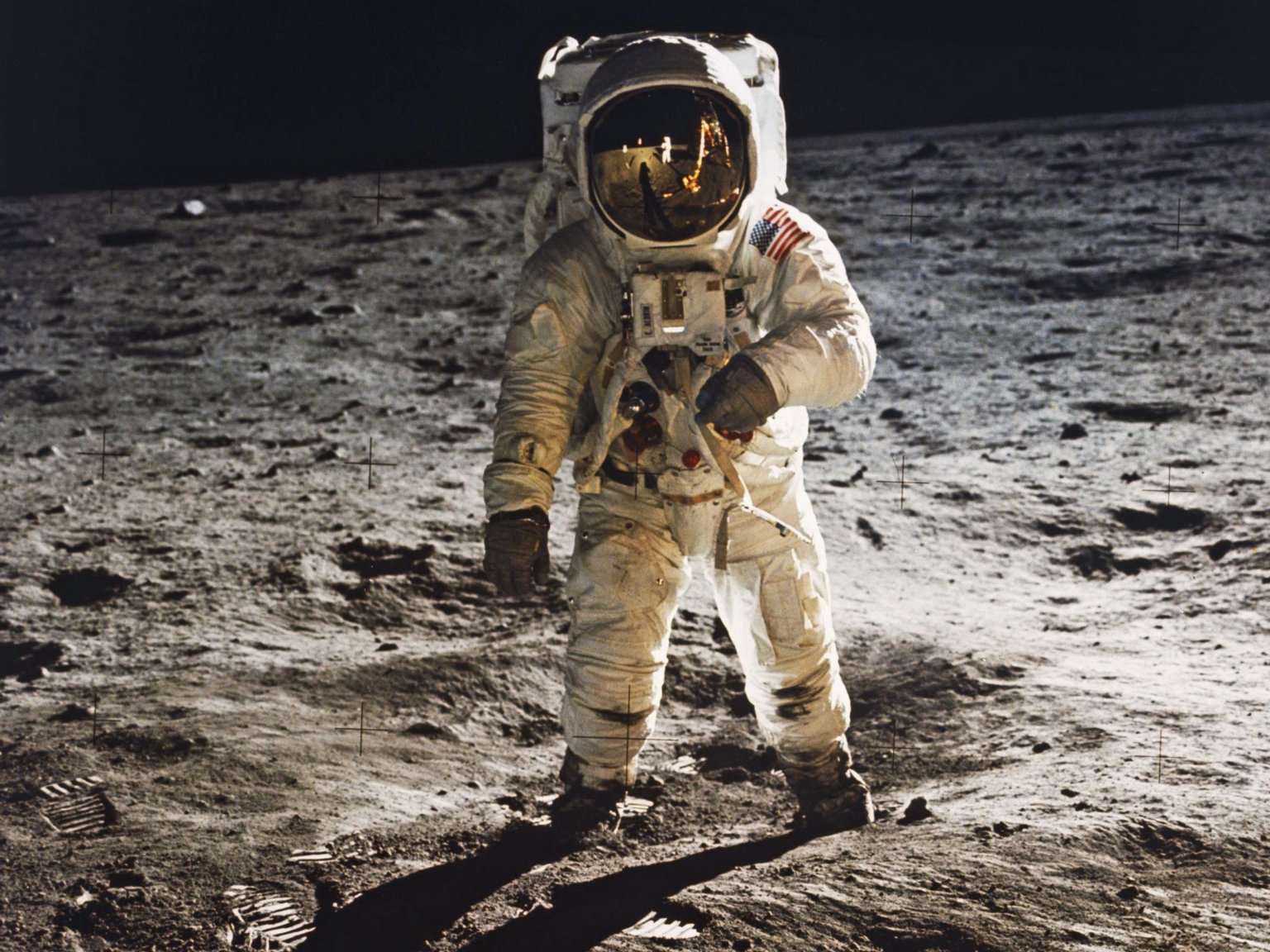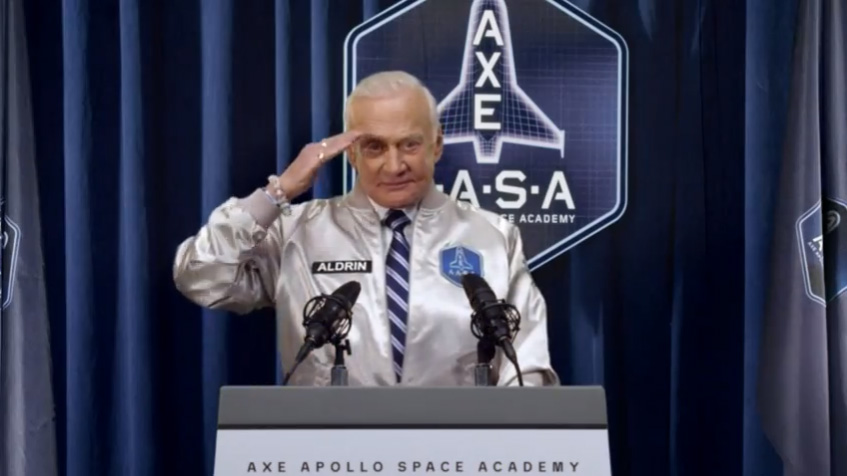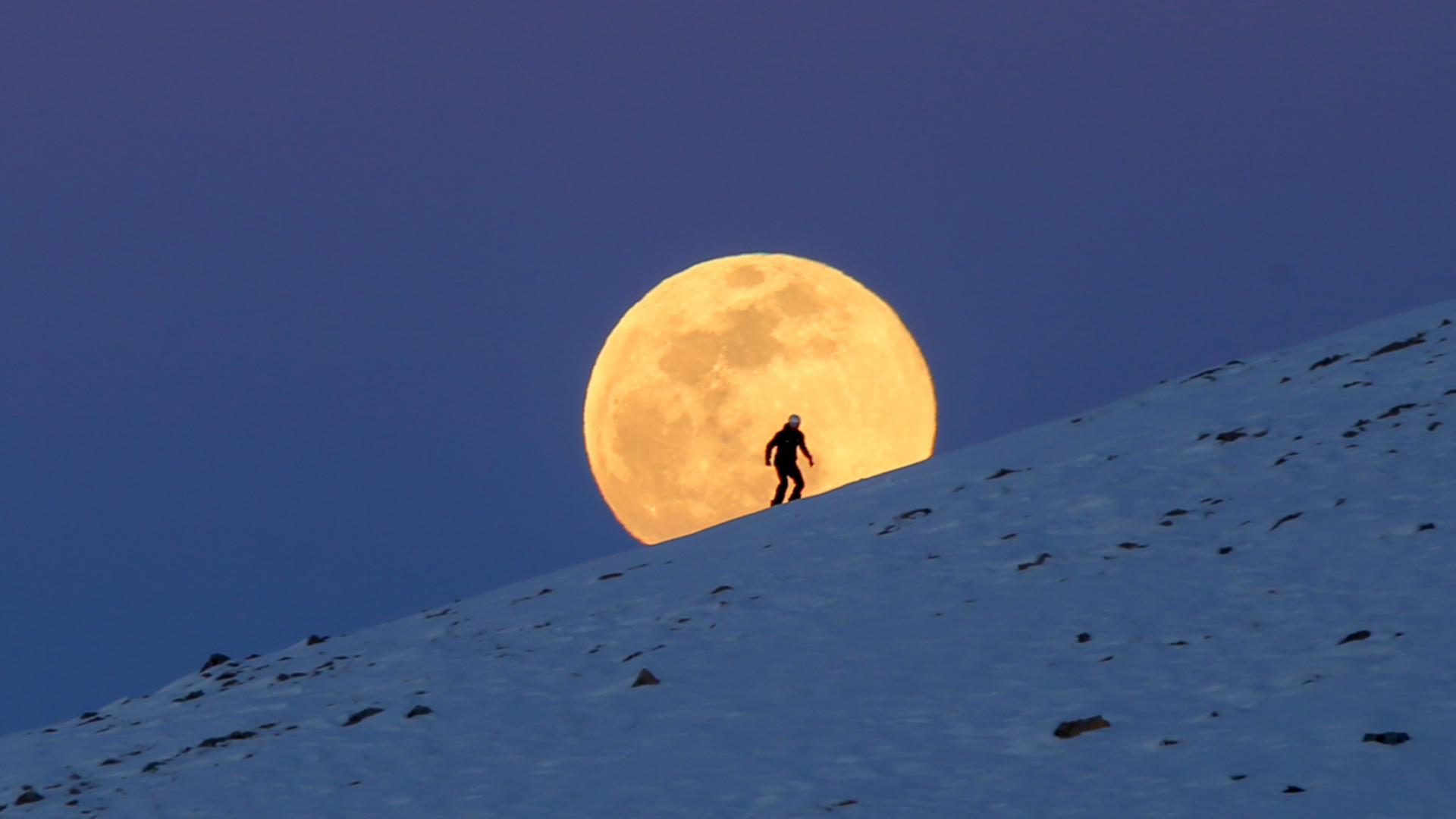Moonwalker Buzz Aldrin Turns Down Free Space Trip

MOUNTAIN VIEW, Calif. — Buzz Aldrin may be a strong supporter of private spaceflight, but the famed Apollo 11 moonwalker apparently has no desire to make a trip himself — at least not to suborbital space.
When a commercial suborbital spaceflight company offered Aldrin — the second human ever to walk on the moon — a free seat aboard one of its spaceships, Aldrin politely declined, the moonwalker said Thursday (June 27) during a press conference announcing the new space-commerce initiative PayPal Galactic. The former astronaut and fighter pilot did not name the company, but major contenders could be Virgin Galactic or XCOR Aerospace, both of which aim to start flying customers in the next year or so.
"Who's going to get the publicity out of me flying in your spacecraft? And who's taking the risk? I don't quite see where there's a payoff in there," Aldrin, 83, said here at the SETI (Search for Extraterrestrial Intelligence) Institute, which is collaborating with PayPal on the PayPal Galactic project.
"Besides, I've been there before," Aldrin added, and laughter filled the room.
But Aldrin is working to help get suborbital spaceflight, and the private spaceflight industry in general, off the ground. For example, he's an ambassador for the AXE Apollo Space Academy, a global contest sponsored by the men's personal care product company AXE that promises to send 22 people to the edge of space and back aboard XCOR's Lynx rocket plane.
Buzz Aldrin, who stepped onto the surface of the moon just after Neil Armstrong in July 1969, sees private spaceflight playing a key role in the years ahead, helping humanity expand its footprint out into the solar system.
"Today, we're on the cusp of a new era in space," Aldrin said. "The [space] shuttles have been retired; the dawn of commercial spaceflight is upon us. Our robotic science probes are spread throughout the solar system, even reaching beyond it. It's not unrealistic to predict we're only a generation away from a permanent human presence on Mars."
Breaking space news, the latest updates on rocket launches, skywatching events and more!
Follow Mike Wall on Twitter @michaeldwall and Google+. Follow us @Spacedotcom, Facebook or Google+. Original article on SPACE.com.

Michael Wall is a Senior Space Writer with Space.com and joined the team in 2010. He primarily covers exoplanets, spaceflight and military space, but has been known to dabble in the space art beat. His book about the search for alien life, "Out There," was published on Nov. 13, 2018. Before becoming a science writer, Michael worked as a herpetologist and wildlife biologist. He has a Ph.D. in evolutionary biology from the University of Sydney, Australia, a bachelor's degree from the University of Arizona, and a graduate certificate in science writing from the University of California, Santa Cruz. To find out what his latest project is, you can follow Michael on Twitter.

